2014 FIFA World Cup Brazil
Part of a series on Association Football. [View Related Entries]
[View Related Sub-entries]
Overview
2014 Brazil World Cup was the 20th international men's football tournament organized by Fédération Internationale de Football Association (FIFA) which took place in Brazil from June 12th to July 13th, 2014.
Background
On October 30th 2007, Brazil was officially chosen uncontested as host nation of 2014 FIFA World Cup after Columbia, the only other candidate nation, withdrew from the process. It is the second time that Brazil has hosted the competition, the last one being in 1950.
Qualification
The preliminary round for the 2014 World Cup began on June 15th, 2011 and concluded on November 20th, 2013, during which 203 senior men's national teams from six confederations competed on the regional level for a place in one of the eight groups, each comprised of four qualified teams. A total of 64 matches are to be played at 12 different venues in mostly metropolitan areas across Brazil.

Preparation
According to the Brazilian government, the costs of the tournament are estimated at $14 billion USD, the highest in history of the FIFA World Cup, which covers the renovation or construction of the World Cup stadia, improving infrastructure, as well as logistical and security plans in host cities. The construction of stadia and public transportation systems in host cities ran many months behind schedule, leading to criticisms from within the FIFA organization and drawing scrutiny from the foreign press.


Protests
The World Cup preparation in Brazil was stymied by waves of protests against the government's lavish spending on the event, in stark contrast to the dire need of funding for public infrastructure and social welfare in less developed regions. The online opposition to World Cup first erupted with the Bus Taxes Protests in São Paulo and other major cities in June 2013 and continued through the first half of 2014, reaching its peak with an explosion of anti-World Cup hashtags during and after the Confederation Cup in January.



On May 30th, Reuters reported that Anonymous was preparing a cyber-attack on corporate sponsors of the World Cup in Brazil to protest spending resources on soccer games while parts of the country live in abject poverty. According to a hacker using the alias Che Commodore, hacking targets of Operation World Cup included Adidas, Emirates airlines, Coca-Cola and Budweiser. The article also reported that 333 documents had been extracted from the Brazilian Foreign Ministry's computing network by a hacker known as AnonManifest, which included a briefing for talks with United States Vice President Joe Biden and a list of sport ministers planning to attend the World Cup.

Notable Developments
Opening Ceremony
On June 11th, the opening ceremony of 2014 World Cup commenced at the Corinthians Arena in Sao Paulo, which included a festive program in tribute to Brazil and a performance of the World Cup official song "We Are One (Ole Ola)" by Pitbull, Jennifer Lopez, and Brazilian star Claudia Leitte. The 30-minute show was followed by the opening match between Brazil and Croatia.
Group Stage
The opening round of the tournament has been marked by an exceptionally large number of goals, with the first goalless tie occurring thirteenth game into the group-stage between Iran and Nigeria, as well as a fair number of upsets that led to the elimination of numerous European contenders, most notably the defending champion Spain, England, Portugal and Italy.
- Group A: Brazil, Mexico,
Croatia,Cameroon - Group B: Netherlands, Chile,
Spain,Australia - Group C: Colombia, Greece,
Ivory Coast,Japan - Group D: Uruguay, Costa Rica,
England,Italy
- Group E: France, Switzerland,
Ecuador,Honduras - Group F: Argentina, Nigeria,
Bosnia-Herz,Iran - Group G: Germany, USA,
Portugal,Ghana - Group H: Belgium, Algeria,
Russia,Korea
Knockout Stage
The sixteen teams that advanced to the round of 16 consisted of five South American teams (Brazil, Chile, Columbia, Uruguay, Argentina), three North-Central American teams (USA, Mexico, Costa Rica), six European teams (Germany, Belgium, Netherlands, Greece, France, Switzerland) and two African teams (Algeria, Nigeria).

On July 13th, Argentina and Germany went against each other in the final match of the 2014 World Cup, which ended with the German side taking the championship title in a 1 – 0 victory.
Related Memes
Robin Van Persie's Header
On June 13th, the World Cup Group B match between Spain and the Netherlands was held at the Arena Fonte Nova in Salvador, Brazil. Despite the odds slightly being in favor of Spain, the defending champion of the tournament, especially after Xabi Alonso secured the first goal with a penalty kick in the 25th minute, the Dutch team captain Robin van Persie managed to catch up with a dramatic equalizer in the 44th minute of the first half (shown below), ultimately leading the Netherlands to a landslide victory of 5 – 1.

Robin van Persie’s crowd-pleasing equalizer was immediately met with praises and excitement from the Dutch and World Cup fans alike on Twitter,[17] giving rise to a slew of photoshopped parodies and a photo fad reminiscent of the Planking pose. According to Topsy,[18] the hashtag #VanPersieing was mentioned more than 3,500 times within the first 48 hours of the goal.
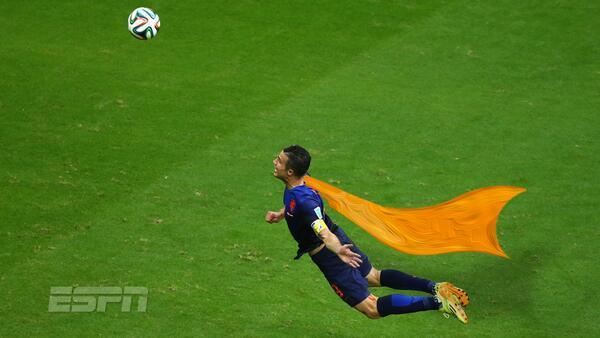
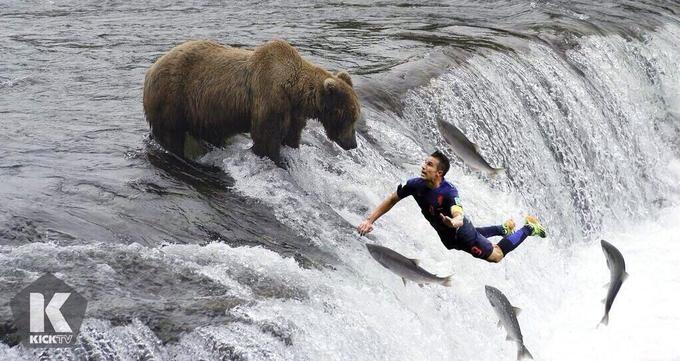




Guillermo Ochoa's Saves
On June 17th, Mexico played against Brazil in their second group-stage match at the 2014 FIFA World Cup. Pitted against a star-studded team playing in their home country, Mexico maintained their line of defense throughout the game and concluded the match in a goalless draw, thanks to an especially spectacular performance by the 28-year-old goalkeeper Guillermo Ochoa. He was named the Man of the Match for making at least six crucial saves to prevent Brazil from scoring a goal.
After the game ended, fans began posting photoshopped images praising Ochoa for his impressive performance.






Adios España
After the impressive defeat in the match against Netherlands, on June 13th, 2014, where Spain lost for 5-1 against its former rival of the 2010 World Cup finals; and again after losing against Chile for 2-0, on June 18th, 2014, football fans around the world started mocking the spanish national team for it's poor performance on this years' tournament with the catchphrase Adios España! (Goodbye, Spain!). It was first used by a man on the stadium, caught by the television cameras on the end of the match against Chile, smiling and waving while holding a tablet with the phrase written on.

After that, it began to be used online to make fun of the teams' subsequent elimination from the tournament in the group-stage, alongside its defeats against Netherlands and Chile.






Miguel Herrera’s Goal Reaction
On June 23rd, 2014, a boisterous Herrera was filmed celebrating several times during his team’s game against Croatia, particularly during a late goal scored during the knockout round (shown below). On the following day, Redditors arg6531 an michael_j_scofield submitted an animated GIF of Herrera celebrating after the first goal during Mexico’s game against Croatia at the World Cup to the /r/gifs and /r/soccer subreddits, where they gained over 3,500 and 1,900 points in the first 24 hours respectively.



Luis Suárez's Biting
On June 24th, during Group D match between Uruguay and Italy, at the 80th minute, Uruguayan forward Luis Suárez competed for the ball with the Italian defender Giorgio Chiellini in the penalty area. The Uruguayan apparently bit the Italian and then fell to the ground (video below, left). Chiellini rose while pulling down his jersey, trying to show the referees what he believed to be a bite mark (picture below, right).

On July 25th, Redditor digz94 posted a photoshopped image of Suárez gnawing on Chiellini’s disembodied arm. In seven hours, the post had gotten over 3800 up votes.

Things Tim Howard Could Save
Things Tim Howard Could Save is a photoshop meme based on cutout images of United States soccer team's goalkeeper Tim Howard making super saves during the round-of-16 match against Belgium at the 2014 World Cup, bearing many similarities to the Guillermo Ochoa Saves photoshop series.
Alejandro Sabella's Fall
Alejandro Sabella's Fall is a photoshop meme inspired by the Argentinian national football team manager's fainting reaction after Gonzalo Higuain's ball struck the bar during the quarterfinal match against Belgium at the 2014 World Cup.
Brazil's 7 – 1 Defeat
2014 World Cup: Brazil vs. Germany was the first of the two semifinal matches in the international football tournament that ended in a 7 – 1 landslide victory for Germany. During the game, several relevant hashtags, including #BrazilvsGermany, #BRA (Brazil) and #GERM (Germany), were mentioned in 35.6 tweets, setting a new record for the most discussed single sports game ever on Twitter.
Sad Braziliian Fan
Sad Brazilian Fan is the nickname given to Clovis Acosta Fernandes, an elderly Brazilian soccer team fan whose teary-eyed reaction to their landslide defeat against Germany at the 2014 World Cup semifinal went viral in July 2014. The picture was initially spread to represent the sadness of Brazilian fans, but was later joined by an uplifting post-game photograph of him passing on the statue to a German fan.
h2. Search Interest
External References
[1] Huffington Post – The Hashtag War In Brazil
[2] Sky News – World Cup 2014: Brazil Protesters Hit Streets
[3] Think Progress – Anti-World Cup demonstrators have taken to the streets of Rio de Janeiro and occupied the city's central station
[4] Reddit – So, you want to come to Brazil for the World Cup?
[5] Google – World Cup-Related Trends
[6] Think Progress – With The World Cup Days Away, Viral Hashtag #NoVoyABrasilPorque Protests Brazil’s Abuses
[7] Memeburn – 2014 FIFA World Cup opening match: the Twitter numbers
[8] Mirror UK – World Cup opening ceremony: Twitter reacts to pre-tournament spectacular in Brazil
[9] BuzzFeed – Here Are The Most WTF Moments Of The World Cup’s Opening Ceremony
[10] Bleacher Report – Shocking Image Goes Viral on Day 1 of World Cup, Shows 2 Sides of Brazil
[11] Engadget – A quick guide to following World Cup 2014 on Google, Facebook and Twitter
[12] Toronto Sun – #FakeWorldCupFacts hashtag invades Twitter
[13] NBC News – Facebook, Twitter Look to Score With Soccer World Cup Features
[14] Al Jazeera – 'I'm not going to Brazil' hashtag tackles World Cup
[15] Tumblr – Tagged results for 'World Cup'
[16] USA Today – Stay in the game: Twitter guide for the 2014 World Cup
[17] Twitter – Tagged Photo Results for #VanPersieing









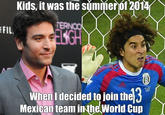

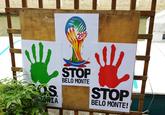
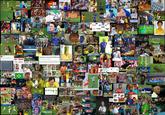





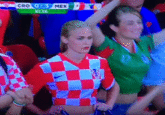

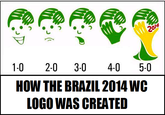
Top Comments
Mangy Black Sheep
Jun 13, 2014 at 02:06AM EDT
Brollyhero93
Jul 12, 2014 at 06:03PM EDT